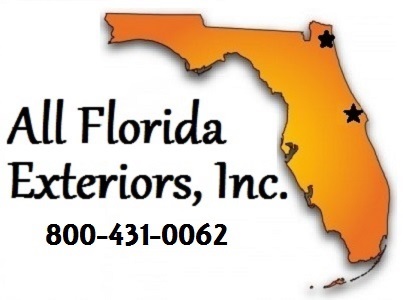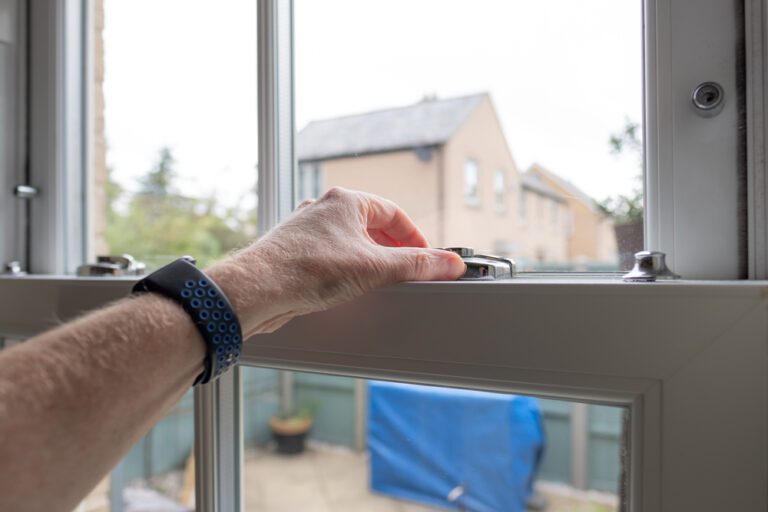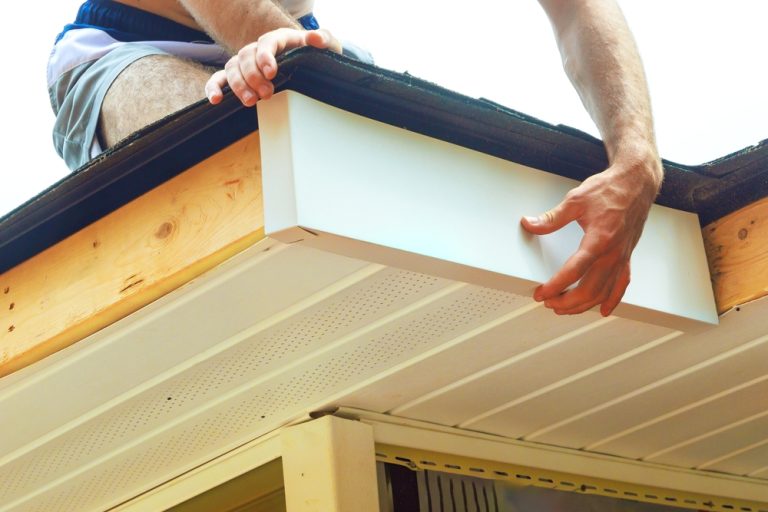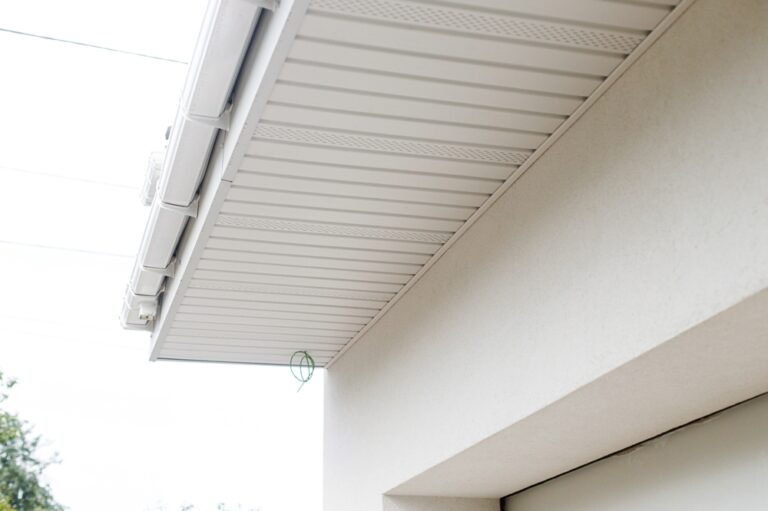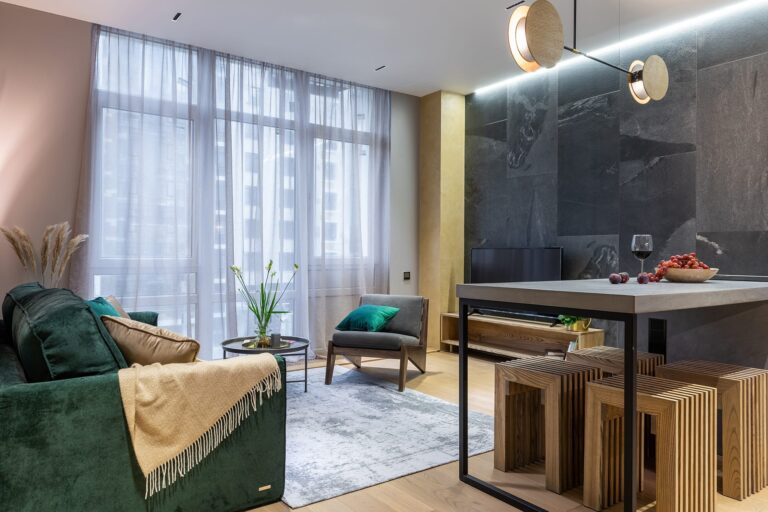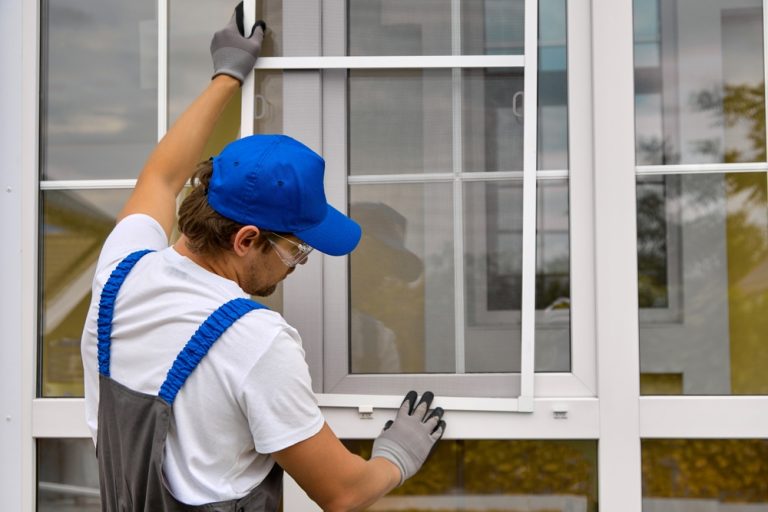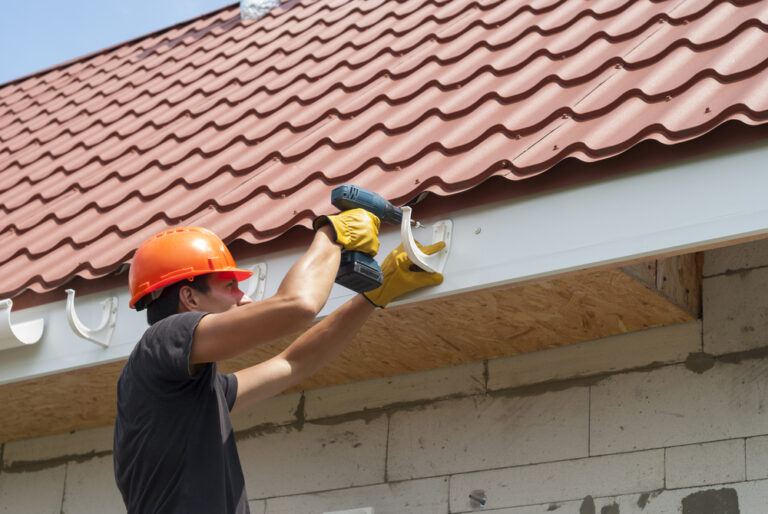If you live in Florida, you already know the climate here isn’t kind to building materials. Heat, humidity, salt air drifting in from the coast, and the very real risk of hurricanes; it all adds up. When it comes to choosing the right front door, the decision isn’t just about looks. The wrong material can warp, rust, or weaken over time. That’s why so many homeowners end up weighing two of the most popular choices head-to-head: fiberglass doors and steel doors.
At All Florida Exteriors, we’ve spent decades helping homeowners across East and Central Florida choose replacement doors that hold up in our climate. We’ve seen what works well long-term and, honestly, what doesn’t. Let’s walk through the pros and cons of fiberglass vs steel doors with Florida’s unique challenges in mind.
Why Florida’s Climate Demands More From Your Doors
A door in Florida faces different enemies compared to, say, a house in the Midwest. Here’s what it’s up against:
- Heat: Temperatures climb, UV exposure is relentless. Dark-colored doors in particular can fade or even warp over time.
- Humidity: Moisture in the air doesn’t just make us uncomfortable. It seeps into porous materials, leading to swelling, mold, or rot.
- Salt Air: If you’re near the coast, that salty mist is constantly in the air. Metal, unless carefully protected, can corrode faster than most people expect.
- Hurricanes and Tropical Storms: Beyond everyday wear, doors here need to stand up to wind loads, flying debris, and water intrusion. A flimsy option just won’t cut it.
Given all of that, choosing between fiberglass and steel isn’t just a style decision. It’s a durability, security, and peace-of-mind decision.
Pros and Cons of Fiberglass vs Steel Doors
Fiberglass Doors in Florida
Fiberglass doors have become increasingly popular, and for good reason.
Pros of Fiberglass Doors:
- Resistant to Moisture and Rot: Unlike wood doors, fiberglass skins don’t absorb water. That means no swelling, warping, or rotting; a big plus in humid areas.
- Great at Mimicking Wood: With modern grain pattern options and finishes, you can achieve the classic wood grain look without the constant refinishing that real wood doors require.
- Energy Efficiency: Many fiberglass doors come with a core made of polyurethane or other insulating materials. That insulating core helps block heat transfer, improving thermal resistance and lowering energy bills.
- Salt Air Protection: Fiberglass doesn’t rust. For coastal homeowners, that’s a game-changer compared to metal doors.
- Durability Against Everyday Wear: High-impact fiberglass shells are resistant to dents and scratches.
Cons of Fiberglass Doors:
- Cost: They often cost more upfront than steel entry doors. Over time, the low maintenance may balance this out, but the sticker price can give some homeowners pause.
- Fading in the Sun: Strong Florida sun can eventually fade darker finishes. UV-protective coatings help, but they do need upkeep.
- Hurricane Resistance Varies: Not every fiberglass door is built the same. Some are hurricane-rated, some aren’t. Homeowners need to check local code requirements carefully.
From our experience at All Florida Exteriors, fiberglass doors tend to shine for coastal homes. They can take the salt air without breaking down, and with professional installation, they meet strict hurricane codes.
Steel Doors in Florida
Steel entry doors carry a reputation for strength and security, and in many cases, it’s deserved. Still, they have a few vulnerabilities in Florida’s climate.
Pros of Steel Doors:
- Security and Strength: A steel sheeting exterior is harder to break through than wood or low-grade fiberglass. For homeowners with security concerns, that matters.
- Affordable: Generally, steel doors cost less upfront than fiberglass. That makes them appealing for budget-conscious door replacement projects.
- Low Maintenance: They don’t warp or crack. With a good finish, they can last many years.
- Hurricane Resistance: Impact-rated steel doors with reinforced frames can stand up well against flying debris and high winds.
Cons of Steel Doors:
- Rust Risk: In coastal areas, salt air accelerates corrosion. Once the finish is scratched, galvanized steel technology can slow rust, but it won’t stop it forever.
- Dents and Scratches: Unlike fiberglass, steel can dent. Even a small dent can expose the material underneath to moisture.
- Energy Efficiency: While many steel doors have an insulating core (like high-density foam or rock wool insulation), they can transfer heat more readily than fiberglass. That means less thermal resistance.
- Less Design Flexibility: Fiberglass doors can be shaped with decorative panels, glass inserts, and realistic wood grains. Steel doors are more limited in style.
For homeowners inland, where salt air isn’t a big issue, steel entry doors can be a practical and cost-effective choice. But on the coast, we usually caution homeowners to consider fiberglass unless they’re committed to ongoing maintenance.
Head-to-Head: Fiberglass vs Steel Doors in Florida’s Conditions
Let’s break down performance by category:
- Heat Resistance: Fiberglass edges out steel here. It insulates better, reducing heat transfer.
- Humidity Protection: Both resist warping, but fiberglass offers better moisture protection overall.
- Salt Air Resistance: Fiberglass wins easily; no corrosion. Steel needs extra care.
- Hurricane Impact Ratings: Both can be hurricane-rated, but you must check the specifications. Don’t assume.
- Security: Steel is naturally stronger against forced entry. That said, high-impact fiberglass reinforced plastic doors are surprisingly tough.
- Cost & Maintenance: Steel costs less upfront but needs more upkeep if exposed to salt air. Fiberglass costs more but lasts longer in coastal climates.
- Curb Appeal: Fiberglass offers a wider range of options for wood grains, decorative flourishes, and glass panels. Steel looks sleek but simpler.
Which Door Is Right for You?
There isn’t one universal answer. It depends on your home’s location, budget, and priorities.
- If you live on the coast: Fiberglass is usually the better long-term choice. It resists salt air and provides good energy efficiency.
- If you live inland: A steel entry door may be the more affordable option. With proper finishing, it can hold up well and still provide strong home security.
- If resale value is important: Fiberglass tends to win. Buyers like the look and the low maintenance.
- If budget is tight: Steel can work, just be realistic about potential rust or dents over time.
At All Florida Exteriors, we don’t just install doors; we match them to your lifestyle and environment. Some families want maximum home security. Others are focused on energy efficiency and curb appeal. For most, it’s a balance.
The All Florida Exteriors Advantage
Here’s where our expertise makes a difference. We’ve installed thousands of replacement doors in Jacksonville and the surrounding areas. We know how fiberglass skins, steel sheeting, and even traditional wood doors really perform in Florida’s climate over ten or twenty years.
- We install hurricane-rated doors that meet or exceed Florida Building Code standards.
- We offer custom design options, from wood-grain fiberglass doors to decorative glass panels and even storm door pairings for extra protection.
- Our team handles professional installation, so your door frame, wall frames, and seals are secure against wind, water, and pests.
- We guide you through installation costs and options upfront, so there are no surprises.
When homeowners come to us with questions about fiberglass vs steel, we don’t just rattle off specs. We share what we’ve seen in real neighborhoods, from rust creeping on a steel entry door in Atlantic Beach to fiberglass doors keeping their finish after a decade near St. Augustine’s coast.
FAQs | Pros and Cons of Fiberglass vs Steel Doors
Q: Do steel doors rust in Florida? Yes, especially near the coast. Galvanized steel helps, but once scratched, rust can develop quickly. That’s why many coastal homeowners lean toward fiberglass.
Q: Will fiberglass doors fade in the sun? Over time, yes. UV-protective topcoats can slow fading, and refinishing can refresh the look. Maintenance is still less demanding than with wood doors.
Q: Can decorative flourishes or glass inserts make doors less secure? Not necessarily. Impact-rated glass panels can be as strong as the rest of the door. The important part is choosing hurricane-rated options.
Q: Are fiberglass doors more expensive to install? Installation costs are often similar. The higher price usually comes from the door itself, not the installation. A professional door installer can walk you through the total project pricing.
Q: What’s the best door for Florida hurricanes? Both fiberglass and steel doors can be hurricane-rated. The key is impact-resistant glass inserts (if any) and reinforced frames. Always check for local code approval.
Final Thoughts
The choice between fiberglass and steel doors isn’t as simple as asking which is “better.” Each has strengths. Each has weaknesses. In Florida, where doors are exposed to moisture damage, heat, salt air, and hurricane threats, the decision is more nuanced.
If you want a door that looks like wood without the upkeep, that resists salt air and insulates against heat, fiberglass may be your best bet. If you want a budget-friendly option with tough security features, steel entry doors might be right for you; just be prepared for possible rust or dents over time.
Either way, working with a trusted local installer makes all the difference. At All Florida Exteriors, our door experts help homeowners in Jacksonville, Ponte Vedra, and across coastal Florida upgrade their home exteriors with doors designed for real-world conditions here. Whether you’re tackling a home renovation, a curb appeal upgrade, or just replacing a worn-out entry door, we’ll make sure you get the right fit for your home.
Ready to find the right door for your Florida home? Contact All Florida Exteriors today for expert guidance on fiberglass replacement doors in Florida. Our team will help you weigh cost savings, durability, and design so you can feel confident about your choice.
